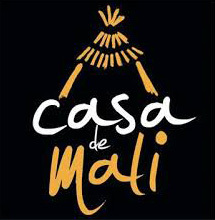GLOBAL PROGRAM IN SIBY
Creation of the New Inhabitants’ Origins
The program is located near the Niger River, 30 KM south of it, in the zone of the Siby village and encompasses a total population of 2,700 inhabitants distributed across three villages: Kaka, Tabou and Djélibani. This last village floods every year during the rainy season, due to their immediate proximity to the river. To avoid this, its inhabitants communicated to us their need to build a new village and it was located near their previous location, but is a meter and a half higher in altitude and closer to the access road.
This project carried out by The House of Mali acts throughout the entire zone with the end goal of bettering the current quality of life.
Functioning of the Self-Sufficiency Model
The self-sufficiency model is the base of all our projects and the key piece for a community to be sustainable. They are developed through successive phases according to the local necessity and the viability of their execution. We work towards the objective of enhancing the entrepreneurship of the local population so that they can cover their necessities and generate work.
Description of the Beneficiaries
The House of Mali received the petition to execute the global program of the Djélibani, Tabou and Kaká population, the Council of Wisemen, the mayor and authorities of the Siby village, and the Association for the Development of Djélibani (AD2) jointly with Sr. Deyoko, director of the School of Architecture (ESIAU).
The construction of the town has benefited the approximately 3,526 inhabitants of Djélibani, Tabou and Kaká, and, by extension, the more than 22,000 inhabitants of Siby, of which a vast majority are children. Because of this, it is considered especially rewarding that the principal beneficiaries of this proposal are the women and children.
Specific Objectives
What is our intention?
- Increase the level of health through the betterment of sanitation, hygiene and salubrity in general health and the betterment of the inhabitent’s conditions, such as their water necessities.
- Increase the economic resources of the population through the creation of employment in various sectors (agriculture, artistry, emerging industries …).
- Uplift the voices of Malian cultures and enhance the cultural riches through formation programs, such as music and dance workshops, so that they can pursue professional careers in those areas.
Activities
How do we do it?
Reconstruction of the New Village of Djélibani
- Construction of households.
- Construction of two schools in Djélibani and Kobada to better primary education.
- Implement a small medical center with sanitary information to prevent illnesses.
- Construction of water wells as a solution for access and sanitation of water like with the development of agriculture.
- Creation of gardens to increase the access to nutrition of the entire community and generate work.
- Train the population through workshops of agricultural production, so that they are able to be self-sufficient; as well as entrepreneurship, so that they can sell excess products from the markets.
- Enhance existing economic sectors like livestock (beekeeping) and cattle raising (chicken farm projects) to generate employment and develop the rural economy.
